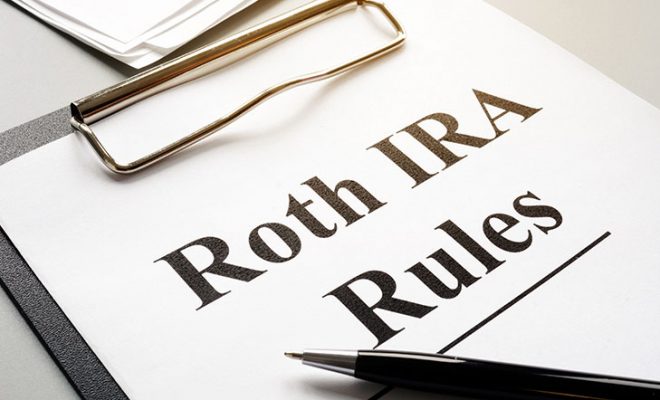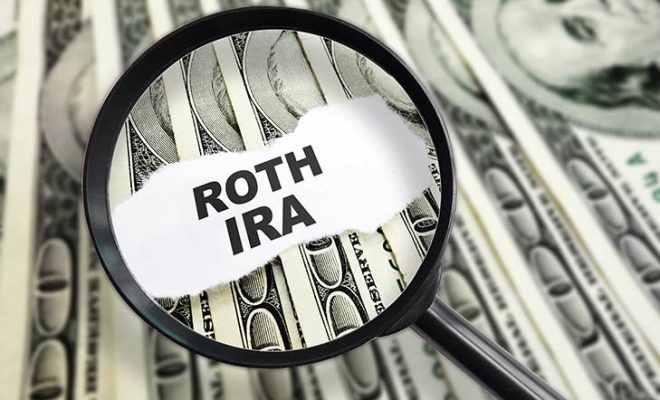Important Things to Remember While Rolling Over a 401(k) Plan

Every time you change your job, not only your designation or salary may change, but your saving methods may also be altered. The 401(k) retirement plan is an employer sponsored plan that a company provides to its employees. You may decide to keep this account with your old employer. However, in some circumstances, this plan could require a rollover when you switch jobs and move to a new organization. A 401(k) account rollover is not as simple as it sounds. Sometimes it may cost you more than the benefits you receive from it, therefore it is essential to keep a few points in mind before making the decision to roll over your 401(k) plan.
What is a 401(k) rollover?
A 401(k) account rollover refers to transferring your existing 401(k) account funds to another retirement account such as an individual retirement account (IRA) or another 401(k) plan. Most people take this step when they change a job and want to carry their funds with them to their new organization.
Here are some important things to remember while rolling over a 401(k) plan:
- Consider your options: There are three types of rollovers that you can consider:
- Rollover from a 401(k) to a Roth IRA: A Roth IRA is a great choice for retirees. However, the option may cost you extra in the form of taxes. The amount that you convert to a Roth IRA will be taxable at ordinary income tax rates.
- Roll over from a 401(k) to a Traditional IRA: Since this is a direct transfer from a traditional 401(k) to a traditional IRA, the process is carried out without any hassles. The 401(k) provider (your old employer) directs the account balance to your IRA provider (your new employer). Your old employer could also send you a check that you can deposit to your new IRA. However, in this case, you need to deposit this check into the new account within 60 days to avoid penalties.
- Roll over from a 401(k) to another 401(k): This is a straightforward process. You can transfer your funds from the old 401(k) account to a new 401(k) account, keeping all benefits intact. You will also not incur any additional taxes if you choose this option. However, your new employer should agree to this and be on board with the rollover. All of these options may appeal to different people based on their needs, employers, and future financial goals. It is important to carefully assess each one of these options above and then talk to a financial advisor to help you to make a prudent decision. You may even continue with your old employer’s 401(k) retirement plan. This is an option that would require the permission of your former employer. But, if you choose to keep your money there you should remember to actively monitor it. This will help you stay in touch with your plan’s performance over the years.
- Remember the 60 day rule: The 60 day rule is crucial when rolling over your 401(k) funds. In case you miss this deadline, you will have to pay additional penalties and taxes on your account. Therefore, the day you receive your funds, ensure to deposit it into another qualified account within the next 60 days.
- Think of the expenses: A 401(k) account is comparatively a more affordable retirement account. While a 401(k) account may charge anywhere between 0.3% to 1% in investment fund expenses, an IRA can charge anywhere between 0.5% to 1.5% of the fund. These expenses can play a vital role in your overall retirement corpus. Therefore, the lower the expenses the better it is for your long-term retirement goals. Make sure to understand the expenses associated with each account before selecting one to rollover your money. In addition to this, the administration fees charged by a company on an employer sponsored plan are also crucial. If your old organization charges a high fee, you could roll it over to reduce the costs. However, if your new employer charges more, you could consider sticking to the old account.
Reasons to avoid a 401(k) roll over
- An IRA is not as secure: A 401(k) account can be used as a powerful tool against creditors in the event of bankruptcy. This is more secure as compared to an IRA, as some 401(k) accounts offer a stable value fund. These funds offer good returns and can be more profitable as compared to other riskier investment options. This provides you with an increased retirement protection.
- An old 401(k) may offer better investment choices: If your new employer offers limited investment choices, it would be more beneficial to stay invested in the old 401(k) account.
- A 401(k) allows fund withdrawal at 55: If you want to quit your job when you turn 55, you can withdraw your funds without incurring the 10% penalty before the age of 59.5. An IRA will not offer you this option.
- A 401(k) offers a loan: Although most experts advise you not to touch your retirement funds for expenses other than retirement, you could still use a 401(k) for a loan in urgent times. An IRA does not offer a loan facility.
Reasons to consider a 401(k) roll over
- You can manage your money better: If all your funds are secure in one place, you will be able to monitor it more efficiently. The chances of working with one company all your life is now rare. Moreover, the chances of shifting to a new job, city, or even country are quite high. Rolling over your 401(k) account will ensure that you are in touch with your funds and how they are being invested.
- You have better investment choices: A 401(k) may offer limited investment choices as compared to an IRA. So, rolling over to an IRA could garner you better returns over time and aid you in building a retirement corpus.
- You can communicate better with a new employer: Once you leave a company, it gets harder to manage your old account. Talking to your old employer or staying up to date with the changes in policies can be tough. If you roll over to a new employer’s plan, you can handle your money more efficiently.
- You do not have to deal with strict rules: A company can alter 401(k) rules as per their needs up to an extent. However, an IRA is managed by the Internal Revenue Services (IRS). Hence, an IRA may be a better option as it is standardized by a government authority and offers more transparency.
To sum it up
Rolling over your 401(k) retirement account is a unique decision that you can take based on your individual requirements and preferences. There is no single rule that can fit all investors. So, it is better to assess your investments as a whole before you make a decision. Since this choice can be confusing and can have far fetching consequences, it can also help to discuss your 401(k) rollover options with a qualified financial advisor.










